 There are good reasons why many autistic people do not want to be publicly identified, such as having it stated on an ID card/driver’s license, as having an autism spectrum disorder. Even though autism awareness campaigns of recent years have produced a society that is now pretty much aware of autism that awareness often includes misconceptions and stereotypes of what an autistic person is actually like in everyday life.
There are good reasons why many autistic people do not want to be publicly identified, such as having it stated on an ID card/driver’s license, as having an autism spectrum disorder. Even though autism awareness campaigns of recent years have produced a society that is now pretty much aware of autism that awareness often includes misconceptions and stereotypes of what an autistic person is actually like in everyday life.
Here are some everyday misconceptions and stereotypes from my own life in recent months:
“Oh, don’t worry! You cannot have autism because you talk.”
“Autistic people can be sweet on the surface, but are prone to violence at the drop of a hat. They can switch from docile to killers in an instant.”
“Everybody knows autistic people are antisocial….no good ever comes of being antisocial.”
“People with autism rock, wear hoodies and hurt themselves. I just stay away from them…don’t want them striking out at me just because I get in their way.”
“Either they are smart like Temple Grandin or a killer like Adam Lanza.”
Misconceptions about who I am as an autistic person abound. I do not always choose to disclose my autism when in public because when I have done so it has not served me well. It seems John Q. Public is indeed aware of autism, but that awareness doesn’t include many useful facts. Thus, public perception of autism is largely based on what is picked up in the news, from TV shows and from other, mostly uninformed, people.
When people are aware of something such as autism it seems they start soaking up tidbits of autism related information as if they have feelers out for this information. I think it is similar to the phenomenon that once you purchase a new car you start noticing all the other cars of that make, model and color as you drive around town. Once you are aware of autism you notice when others are talking about anything related to autism.
The problem with where we are at this period in history is that nearly everyone in our society is aware of autism. Their feelers are out and they pick up various sorts of information to inform themselves. Some of that information is merely another person’s misinformed opinion. Sometimes it is the misperception of news stories that link crimes with a person’s autism. Other times society is lured into thinking an autistic person is like a sitcom character such as Sheldon in Big Bang Theory or Max in Parenthood.
Additionally, there seems to be a high degree of invented knowledge. This happens when a person has autism awareness and adds in the neighbors ideas, the news media stories and maybe the information from the friend whose sister’s next door neighbor’s babysitter said….and then John Q. Public adds this sort of information in the hopper of his own sketchy understanding. Together, his sketchy awareness of autism along with his newly heard autism tidbits serve to invent for him his own explanation about people with autism.
This is how the general public comes to their understanding of who I am as an autistic person. Their understanding causes them to believe things about me that are not true. And based upon their beliefs – often, erroneous beliefs – they treat me in a way that makes logical sense to them in the moment. What makes logical sense to a police officer, a fire fighter, an airline attendant, a grocery store check out person, a teller at the bank, a cashier at a department store – or any other place where an ID is requested is typically based on a mix of truth and fiction about autism in general. If my ID is marked in a way to broadcast that I have autism I will be treated in accordance with that person’s current working bag of awareness, hearsay and assumptions about autism. Some will have real knowledge, but most people at this point in time have very little real knowledge about autism – only the socially accepted awareness enhanced by news reports linking autism to various crimes.
I do not choose to disclose my autism in most of the situations stated above. The times in my life when I am out and about in the public and do choose to disclose I have occasionally been pleasantly surprised by the understanding and accommodations offered by others. But more often I have been unpleasantly surprised by the assumptions made about me. I know only too well the consequences reigned down on me when John Q. Public is aware of autism. Sometimes it means a person will raise his voice volume thinking that somehow I, an autistic person, will understand him better if he speaks to me more loudly . Other times it means mall security is called because it is assumed my behavior will become violent after a friend discloses I am autistic as an explanation for the uncoordinated movements and loud voice that happen to me when I am in sensory overload.
Because at this point in history society is well aware of autism, but very short on understanding autism in a way that leads to acceptance I am not willing to have my ID card state to all who see it that I am autistic. While in rare instances it may be helpful, in many more instances it places a target on my back – one that might as well say “shoot me.” This is very real to me and to many autistics. It is why we do not want to have our IDs stamped with something that can be likened to wearing a scarlet letter – a scarlet A for autism. It simply is not safe in a world where awareness of autism is the status quo.
RELATED LINKS:
Law Allowing Autism to be Listed on IDs Moves Through Legislature
Autism Designation on Virginia Driver’s Licenses, Not Completely Voluntary, Passes Senate Transportation Committee
 JUDY ENDOW, MSW
JUDY ENDOW, MSW
Judy is an autistic author and international speaker on a variety of autism related topics. Read more from Judy on Ollibean here and on her website www.judyendow.com.

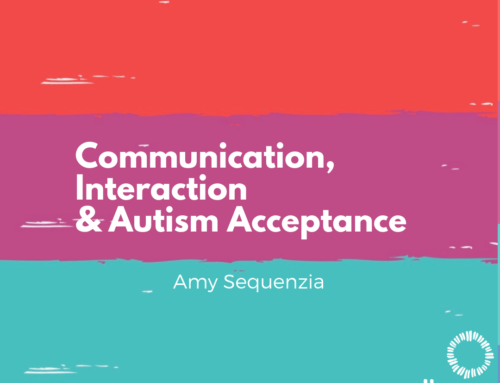
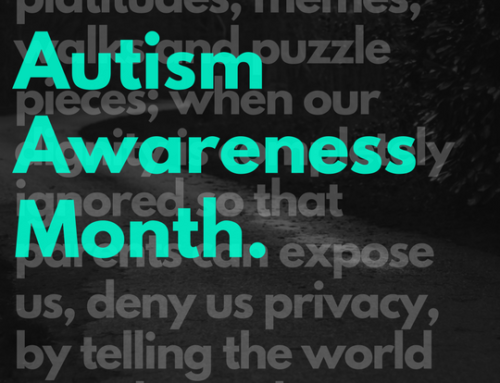
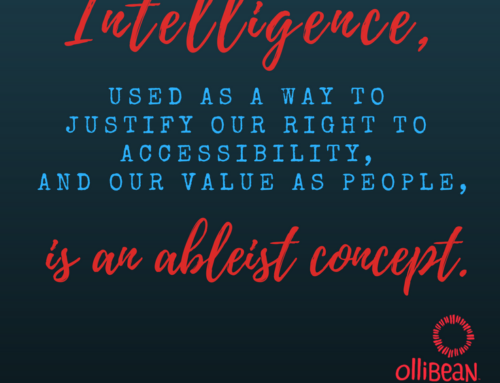
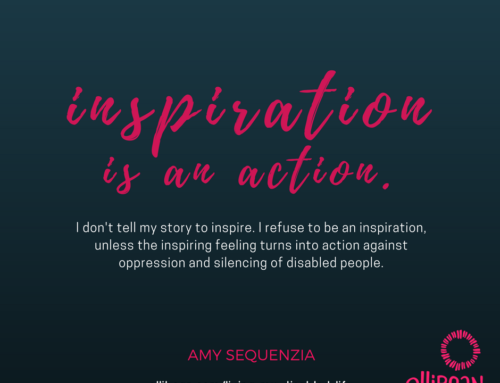
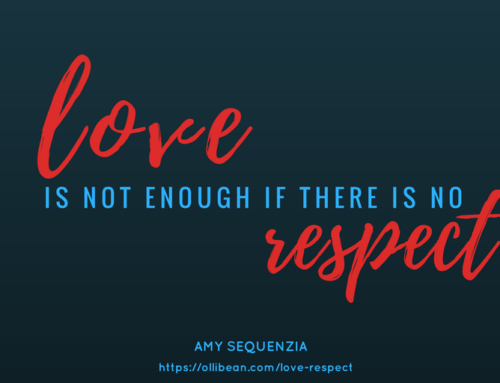
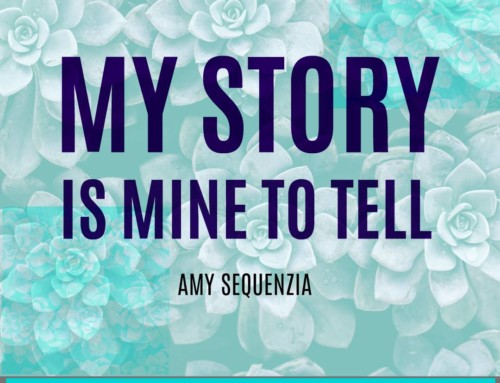
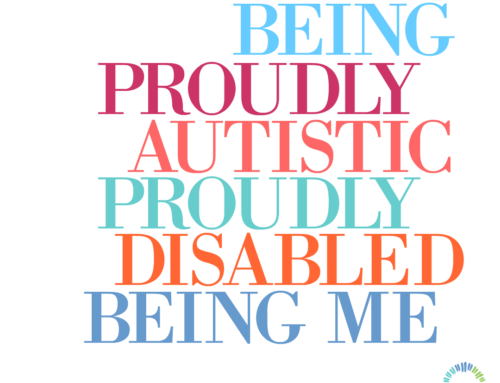
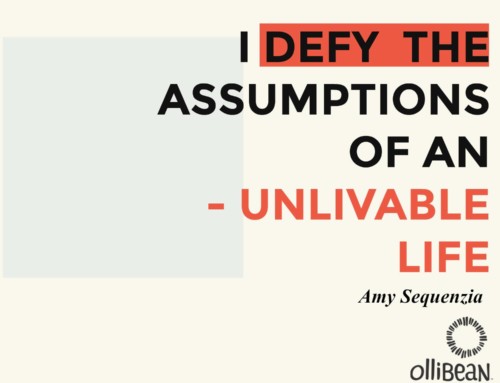
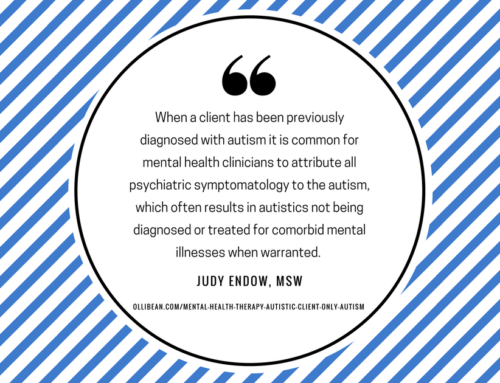
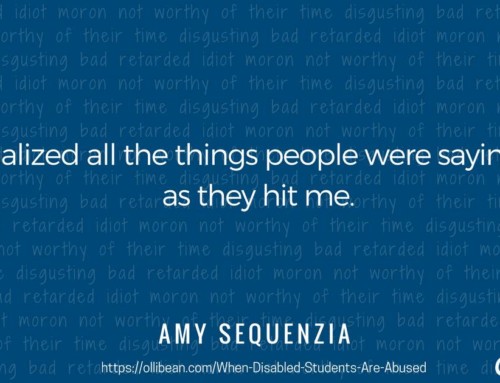

No. Absolutely NO. There is absolutely no reason to call attention to the fact that someone has autism. If a person with autism is getting a driver’s license, I’m assuming that they are high functioning enough to drive. So why “brand” them with the big old “A” on their driver’s license? First of all, I’d be scared to death that someone would see it and think “easy target.” It happens every day with bullying, etc. It’s truly nobody’s business that someone has autism. If you want to tell them, that’s fine, but to require it is a violation of the most basic of civil rights. Remember, Hitler put JUDEN on the jews. Enough said.
Agreed. I worry about when my child goes for her DL if the car INS. carrier will charge her much higher rates than NT kids her age.
i think it’s a misguided attempt to assist authorities who lack sufficient training and education. police in particular don’t know how to deal with people with autism, and in a larger sense schizophrenia and many mental illnesses that disproportionately affect homeless populations. the nation-wide militarization of cities’ police forces has resulted in too many steven washingtons, stephon watts, kelly thomases, etc., dead because of lack of training, excessive force, or a sad combination of both. unfortunately SoCal authorities are a prime example of this
I carry an Asperger’s card, that I can pull out when I am in difficulty. I can point to the information I WANT to share if I am too overwhelmed to speak well to strangers. This is a CHOICE I can make, WHEN I decide I NEED it.
So called professionals (teachers, police, emergency service people) have all contradicted me when I have stated my Dx, so I would NOT support it being included on a Driver’s ID.
I think it’s another label to give individuals. I understand labels can be important in order to help individuals out who are on the spectrum but having it on a license is going to create a lot of assumptions and stereotypes. In a world where many value equality, sometimes I believe that it’s better to get rid of the labels all together. However, if one doesn’t have a label often times it’s harder to receive extra governmental services etc. I am not for putting an autism label on an ID, however if someone isn’t able to communicate, it might help the person requesting it to understand why the person may be “acting weird.” For instance maybe I’m at an airport and I get really anxious to get to the plane on time, however TSA doesn’t see it that way where they view me as a possible threat. Having Autism labeled on my ID may help them to understand why I might be so anxious, however why not simply just disclose that instead? Why should it be mandatory to put on ones ID for those that have Autism when no one else has to put an extra label on theirs? In many cases if one isn’t able to talk or is requesting some extra services, usually a doctors letter is sufficient. But in a time where many of us want equality, I feel putting a label on ones ID card without a choice of whether to disclose or not is an extra label that may not be needed as often times it creates more confusion and assumptions for those checking the ID for what it’s worth. So I would not be in support of having Autism being labeled into ones ID card unless the individual with the disability supports it based on their discretion.
You make important points. I wouldn’t want to see an “A” on my son’s ID. However, when he has a seizure he gets very disoriented. I wish his ID indicated something about that. (And no, he doesn’t want to wear a medic-alert tag.)
While it could be helpful in a rare instance, it really doesn’t help to stigmatize people especially when the diagnosis comes with so many preconceived notions that are far from reality.
If you have concerns about this bill, please join the conversation here: This is primarily a site for people who have concerns that the bill may have negative unintended consequences. http://www.facebook.com/SB367VirginiaAutismOnDriversLicense
Not a good idea and no need to repeat the resasons. I think it should be up to the person whether to list any diagnosis on an ID.
I can see why some people (as has been said) may want to carry their own card that they can use in situations where they feel they need it, but it is important that they have the ownership and control over what is seen and by whom. These cards are ridiculous and wrong, singling out people for no reason – there’s no medical reason for example to have that information. Plus, this will likely open another can of worms and laws could be passed for things like mental illness, that will negatively affect even more people for no real reason
ALERT: If you commented on one of my threads about the Virginia bill that would allow an autism diagnosis on a driver’s license or ID, I would like to ask permission to quote your comments (in opposition, which were most of them). I will not name you. I will remove expletives. I just need quotes that convey a sense of other people’s comments, not just my own. I can’t do this without permission. If I remember who has written some of the many many comments I received, I will contact you privately. I don’t have time to track them all down so if you know you are one of the people and it’s OK to use your comments (without identifying you) please PM me or say “yes” here. Otherwise, this bill is going to pass. IMO.